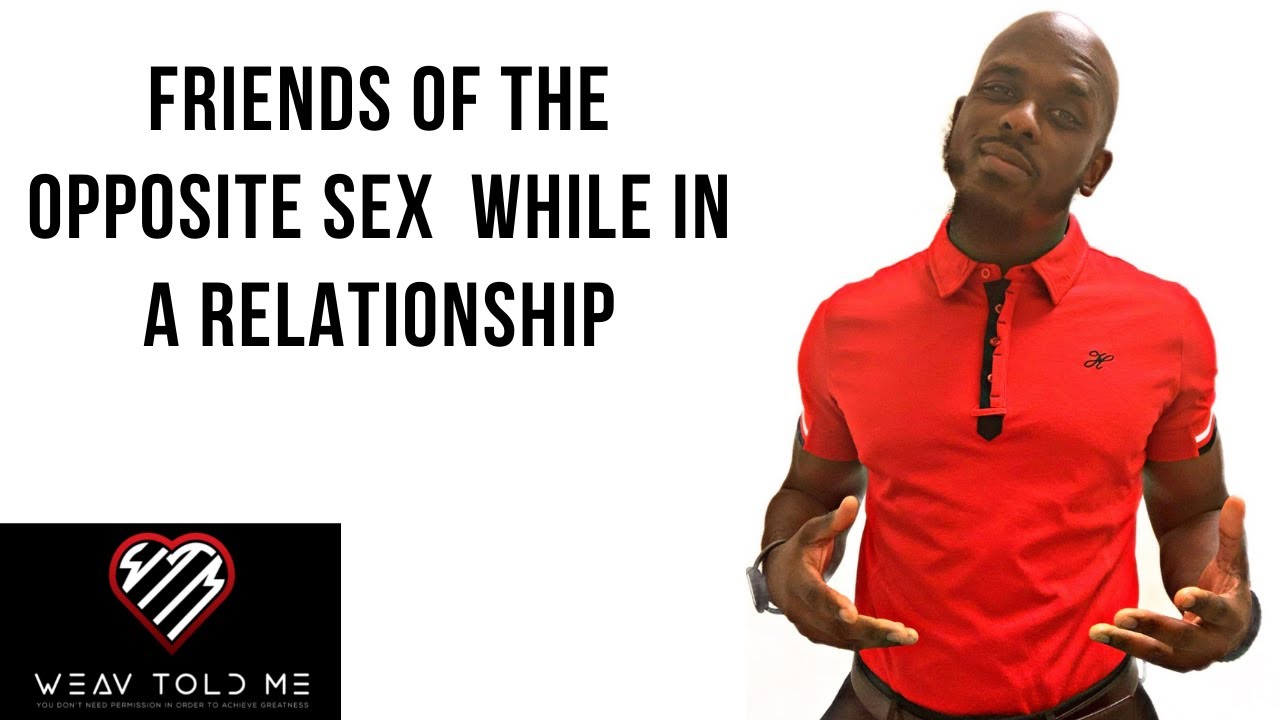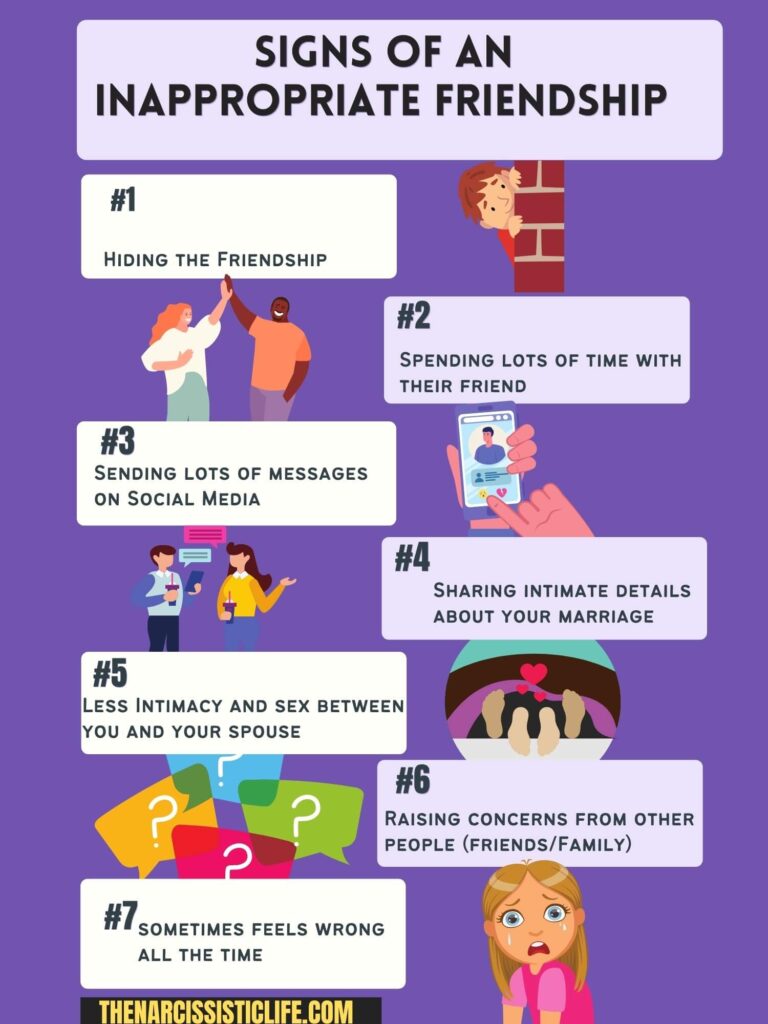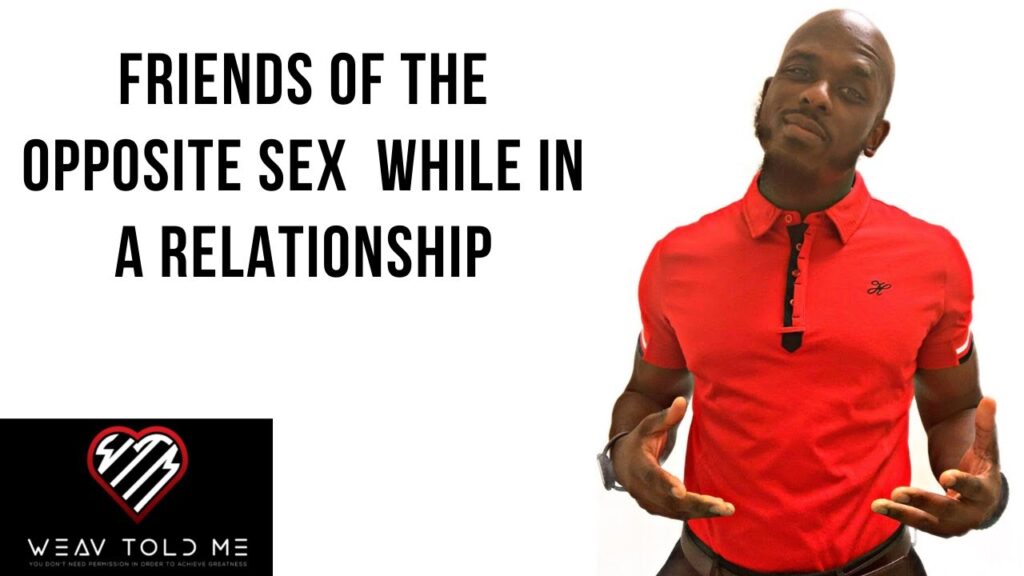
Have you ever found yourself feeling a bit uneasy or insecure about your partner’s close friend of the opposite sex? It’s a common concern that many individuals face in relationships. The fear of feeling jealous or threatened can often lead to tension and strain on the relationship. But fret not, as there is a solution to help navigate through these emotions and maintain a healthy bond with your partner. Introducing “How Do I Handle Feeling Insecure About My Partner’s Close Friend Of The Opposite Sex?” This product is specifically designed to provide you with effective strategies and insights to address and overcome your feelings of insecurity, fostering a stronger and more trusting relationship with your partner.

This image is property of thenarcissisticlife.com.
Understanding Your Feelings
Identifying the source of insecurity
It’s completely natural to feel insecure at times, especially when it comes to your partner’s close friend of the opposite sex. The first step in handling these feelings is to identify the source of your insecurity. Are you worried that your partner may develop romantic feelings for their friend? Or do you feel threatened by the strong emotional connection they share? Understanding the root cause of your insecurity will help you address it more effectively.
Examining past experiences
Insecurity can often stem from past experiences that have left us feeling vulnerable or betrayed. Take a moment to reflect on any past relationships or events that may be contributing to your current feelings. Has there been a history of infidelity or emotional unavailability in your previous relationships? By examining these past experiences, you can gain a deeper understanding of why you may be feeling insecure and work towards resolving any unresolved emotions.
Reflecting on personal insecurities
Insecurities are not exclusive to relationships; they often stem from our own personal doubts and fears. Take some time to reflect on your own insecurities and how they may be influencing your feelings in this situation. Are you worried about your own self-worth or attractiveness compared to your partner’s friend? By addressing and working through your personal insecurities, you can develop a healthier perspective on your relationship and gain a stronger sense of self-confidence.
Open Communication with Your Partner
Expressing your concerns
Open and honest communication is the foundation of any healthy relationship. If you’re feeling insecure about your partner’s close friend, it’s important to express your concerns to your partner in a calm and non-accusatory manner. Let them know that you value their friendship but also share how it makes you feel vulnerable. By opening up about your emotions, you create an opportunity for your partner to reassure and support you.
Being honest about your feelings
In addition to expressing your concerns, it’s crucial to be honest about your feelings. Acknowledge that feelings of insecurity may arise from time to time and reassure your partner that it’s not a reflection of their actions or intentions. By being transparent about your emotional state, you foster a safe and supportive environment where both of you can work together to address and overcome any issues that may arise.
Asking for reassurance
Feeling insecure doesn’t mean you lack trust in your partner; it simply means you need reassurance. Let your partner know that you appreciate and value their friendship, but also request reassurance in the form of affirmations and gestures that strengthen your bond. This could include planning quality time together or engaging in activities that deepen your connection. By openly asking for reassurance, you establish a sense of emotional safety within the relationship.
Establishing Boundaries
Discussing boundaries with your partner
Establishing boundaries is a healthy way to preserve the integrity of your relationship while respecting your partner’s friendships. Sit down with your partner and openly discuss boundaries that would make you feel more secure. This could involve setting limits on alone time or discussing appropriate boundaries for communication, such as late-night texts or intimate conversations. Remember, boundaries are not meant to control or restrict your partner, but rather to ensure both of you feel comfortable and respected.
Mutual agreement on acceptable behavior
During your discussion about boundaries, it’s important to reach a mutual agreement on what is deemed acceptable behavior. Both you and your partner should have a say in defining the boundaries that will foster a sense of trust and security in your relationship. By coming to a shared understanding, you establish clear expectations and prevent any misunderstandings or conflicts in the future.
Avoiding ultimatums
While it’s important to have boundaries, it’s equally important to avoid issuing ultimatums to your partner. Threatening to end the relationship unless they sever ties with their friend is neither fair nor productive. Instead, focus on finding a compromise that honors both your need for security and your partner’s need for maintaining their friendships. Ultimatums only create resentment and can damage the trust in the relationship.
Building Trust in the Relationship
Honesty and transparency
Trust is the bedrock of any successful relationship, and building and maintaining trust requires honesty and transparency. Share your own feelings and thoughts openly with your partner, and encourage them to do the same. Be honest about any insecurities or concerns you may have, and actively listen to your partner’s perspective. By fostering an environment of openness and trust, you can strengthen the bond between you and your partner.
Avoiding jealousy and possessiveness
Jealousy and possessiveness often go hand in hand with insecurity, but they can be detrimental to a healthy relationship. Instead, focus on cultivating trust and allowing your partner the freedom to have close friendships. Remind yourself that your partner chose to be with you and that their friendships do not diminish their feelings for you. Trusting your partner’s judgment and respecting their friendships will help you feel more secure and improve the overall quality of your relationship.
Fostering trust through actions
Words alone are not enough to build trust; actions play a crucial role as well. Show your partner that you trust them by supporting their friendships and encouraging them to spend time with their close friend. Avoid exhibiting controlling behaviors or constantly questioning their loyalty. Instead, engage in activities that strengthen your bond, such as shared hobbies or adventures. By consistently demonstrating your trust through your actions, you create a solid foundation for a trusting and secure relationship.

This image is property of cdn2.psychologytoday.com.
Getting to Know the Friend
Spending time with the friend
One effective way to overcome insecurity is by getting to know your partner’s close friend. Spend time together as a group, engaging in activities that allow you to interact and build a rapport. By spending time with the friend, you can gain insight into their character and understand the dynamics of their friendship with your partner.
Building a friendly rapport
Developing a friendly rapport with your partner’s close friend is essential to alleviating any feelings of insecurity. Treat them with genuine kindness and respect, and show an interest in their life and their friendship with your partner. Engage in conversations that go beyond small talk, and find common ground that can help foster a genuine connection.
Understanding their role in your partner’s life
Remember that your partner’s close friend plays a unique and significant role in their life. Rather than viewing their friendship as a threat, try to understand the value and importance it holds for your partner. Recognize that your partner’s relationship with their friend can provide support, companionship, and shared experiences that are separate from their romantic relationship with you. By acknowledging and respecting their friendship, you can create a more secure and harmonious environment for all parties involved.
Self-Reflection and Self-Improvement
Boosting self-esteem
Insecurity often stems from a lack of self-esteem or self-worth. Take time to engage in activities that boost your self-confidence and promote a positive self-image. This can include pursuing personal interests or hobbies, practicing self-care, or seeking out opportunities for personal and professional growth. By investing in yourself and building your self-esteem, you become more resilient in managing feelings of insecurity.
Addressing personal insecurities
Recognize that you are in control of your own emotions and insecurities. Take proactive steps to address any personal insecurities that may be amplifying your feelings of insecurity in this situation. This could involve therapy, self-help books, or engaging in practices such as mindfulness and self-reflection. By understanding and addressing your insecurities, you can cultivate a healthier mindset and navigate your relationship with greater confidence.
Engaging in self-care activities
Self-care is an essential aspect of maintaining balance and well-being in any relationship. Prioritize activities that make you feel good about yourself and contribute to your overall happiness. This can include exercise, meditation, spending time with loved ones, or indulging in hobbies that bring you joy. By taking care of yourself and prioritizing your own well-being, you strengthen your emotional resilience and ability to handle feelings of insecurity.

This image is property of i.ytimg.com.
Seeking Professional Help
Couples therapy
If the feelings of insecurity persist and begin to impact your relationship, considering couples therapy can be immensely beneficial. A licensed therapist can provide a safe and neutral space for both you and your partner to explore your feelings, improve communication, and develop effective strategies for managing insecurity. Couples therapy can help you navigate complex emotions and strengthen the foundation of your relationship.
Individual therapy
In addition to couples therapy, individual therapy can also be a valuable resource for addressing personal insecurities and building self-confidence. A therapist can assist you in exploring the underlying causes of your insecurities, developing effective coping mechanisms, and improving your overall emotional well-being. Individual therapy provides a supportive environment for personal growth and self-improvement.
Professional guidance and advice
Sometimes, seeking professional guidance and advice outside of therapy can offer valuable insights and perspectives. Relationship coaches, self-help books, and online resources can provide guidance on managing insecurity and developing healthy relationship dynamics. However, it’s essential to vet sources and ensure they come from reputable and experienced professionals.
Support from Friends and Family
Talking to trusted friends or family members
During times of insecurity, reaching out to trusted friends or family members can provide valuable emotional support. Share your concerns and feelings with those who understand and care about you. Seek their advice and guidance, as they may have experienced similar situations and offer helpful insight. Surrounding yourself with a supportive network can help alleviate some of the stress and insecurity you may be feeling.
Seeking advice from those with similar experiences
In addition to friends and family, seeking advice from individuals who have experienced similar situations can be incredibly helpful. Online forums, support groups, or even seeking out blogs and articles written by people who have navigated similar insecurities can provide guidance and reassurance. Hearing from others who have successfully managed their own insecurities can offer hope and inspiration.
Emotional support from loved ones
When feeling insecure, it’s crucial to lean on your loved ones for emotional support. Communicate your feelings and concerns openly, and allow them to provide reassurance and comfort. Sometimes, simply venting your emotions to a compassionate listener can be incredibly cathartic and comforting. Remember that you don’t have to face your insecurities alone; your loved ones are there to support you.

This image is property of www.readunwritten.com.
Recognizing Healthy Relationships
Understanding signs of a healthy relationship
Educating yourself on the signs of a healthy relationship can help put your own insecurities into perspective. A healthy relationship is characterized by open and honest communication, mutual respect, trust, support, and the freedom to maintain individual identities and friendships. Recognizing these signs can help reassure you that your own relationship is strong and secure.
Recognizing unhealthy patterns
In contrast to healthy relationships, unhealthy relationships may exhibit various warning signs. These can include controlling behaviors, lack of trust, frequent arguments or hostility, disrespect, or a lack of emotional support. Understanding the signs of an unhealthy relationship can help you differentiate between normal relationship challenges and potentially toxic dynamics.
Differentiating between platonic and romantic connections
It’s essential to distinguish between platonic and romantic connections when assessing your partner’s close friendship. Trusting your partner’s ability to maintain boundaries and understanding the difference between friendship and romantic involvement is crucial. Remind yourself that a close friendship with someone of the opposite sex does not automatically denote romantic interest or a threat to your relationship.
Taking a Step Back
Assessing the overall relationship
When managing feelings of insecurity, it’s important to take a step back and assess the overall health and satisfaction of your relationship. Consider the positive aspects, such as shared values, common goals, and the love and support you both provide each other. Reflect on the overall happiness and fulfillment you experience in the relationship. By gaining a broader perspective, you can place your feelings of insecurity into context.
Understanding the importance of personal space
Maintaining a healthy balance between togetherness and personal space is essential in any relationship. Recognize that it’s healthy for both you and your partner to have individual interests, hobbies, and friendships. Allow your partner the freedom to cultivate their relationships while still prioritizing your bond as a couple. Understanding the importance of personal space can alleviate feelings of insecurity and promote a harmonious relationship.
Considering the long-term impacts
When grappling with feelings of insecurity, it’s important to consider the long-term impacts of your actions and how they may affect your relationship. Confronting and addressing your insecurities in a healthy and proactive manner can lead to personal growth and a stronger relationship. Conversely, allowing insecurities to fester and manifest into controlling behaviors or ultimatums can erode trust and create further strain. Remember the importance of building a foundation of trust and open communication for a lasting and fulfilling partnership.






